I wear face masks. You wear face masks. We all wear face masks in 2020. 😜
While we're very grateful for a tool that helps protect our communities, let's face it: face masks suck. They're hot, make breathing challenging, and aren't friendly to your skin. In fact, all of this face mask-wearing triggers some serious side effects. We're talking blotchiness, dry skin, and even "maskne" (acne caused by wearing masks). Jump in with me as we tackle skin woes caused by face masks and how you can fight them face-on.

Fighting Maskne
If you've been wearing PPE for a while now, you've probably encountered maskne. If we're being technical here, the medical term used by skin pros everywhere is "acne mechanica," a skin condition brought on by prolonged wear of facial personal protective equipment"(1). You're primed for a maskne breakout when you wear cotton or medical-grade masks for several hours at a time. That's because:
“[m]asks impose heat, friction and occlusion on the skin and when combined with a moist environment from breathing, talking or sweating, this is a recipe for breakouts,” Dao says. “Pores get clogged and can become pimples or acne cysts. On top of that, the prolonged occlusion, heat and sweat can cause the skin to become dry, itchy and raw.”
(Loma Linda University Health)
While maskne is no picnic, rest assured that there are plenty of natural remedies to get you sorted! Alternate between a gentle peppermint and tea tree oil face wash and a natural exfoliating facial scrub. They'll target clogged pores, blackheads, acne, and other breakout woes at the source, leaving skin clear and glowing. Next, follow up with a hydrating clay-based face mask 1-2 times a week for more rapid results.

Unfortunately, maskne isn't the only boogie targeting your masked-face. Here's the whole gang of skin-hating bad boys:
Seborrheic Dermatitis
If you've been around the skincare block before, you'll probably recognize the "dermatitis" in Seborrheic Dermatitis. Like other forms of dermatitis, this skin condition refers to your body's production of dandruff, scaly plaques, and painful, inflamed skin.

Try a facial moisturizer filled with tea tree and sunflower oil to keep seborrheic dermatitis in its place!
Folliculitis
Sure, this bad boy is a mouthful, but just think "follicle" and you're halfway there! Folliculitis is the uncomfortable outcome of bacteria or yeast infecting your hair follicles. Gross? Totally. But don't worry, there are natural remedies to help you get back to selfies in no time.


Tea tree oil's natural anti-microbial properties help treat and clear folliculitis' bacteria. Some natural health experts also recommend Tumeric for prevention of Folliculits. Go ahead and make sure to grab some products rich in Tea Tree oil for keeping your face clear and smiling.
Rosacea
Ever had an unsightly condition of patchy redness on your face caused by visible blood vessels? That's rosacea (roe-ZAY-she-uh). The bad news is that stress, heat, and (you guessed it!) mask-wearing worsens roscea.

Another condition you might encounter that's similar to rosacea is perioral dermatits.
People with perioral dermatitis have recurring bouts of a red, bumpy rash around their mouth and chin. The area around the eyes can be affected, too. Women between ages 20 and 60 are most likely to have the condition[.]
Coronavirus: Tips to Avoid "Maskne" Skin Irritation (John Hopkins Medicine - hopkinsmedicine.org)

Don't fret! You can easily treat both of these conditions with a little aloe vera and tea tree oil. This mighty duo fights back against rosacea-like symptoms while reducing inflammation.
Start by exfoliating your face with a natural facial scrub and following it up with some organic aloe or a tea-tree rich serum.
Allergic Contact Dermatitis
Depending upon how your face mask was manufactured, contact allergic dermatitis can ravage your face. Did the manufacturer use harsh chemicals like bronopol or formaldehyde during production? Did they use harsh dyes or fragrances in creating the fabric or surgical mask?
Make sure you avoid masks made with sketchy toxins unless you're totally cool with painful, itchy, and annoying allergic reactions. (Pssst: we never put toxic chemicals or allergy-triggering junk in our cotton face masks 😘)
If you do have a bout of contact dermatitis, though, make sure to apply some aloe vera for soothing and healing your skin.

Atopic dermatitis / Eczema
This nasty chronic skin disorder triggers itchy and dry skin with scaly patches frequently on the face and scalp. You'll see atopic dermatitis (or eczema) most frequently in babies and very young kids, although teens through adults can have eczema too. Lucky for you, it's not contagious. Still, mask-wearing can trigger this bad boy into resurfacing.
Grab some sunflower oil or witch hazel for inflammatory benefits and bolstering your skin's natural barriers.

Stay Safe, Babe!
No matter what condition your mask is waging against your skin, please remember to stay safe. Sure, mask-wearing can be a bit rough, but these natural ingredients’ have got your back. Here’s to a time when we won’t need to don face masks every time we leave the house! Until then:

Jenny
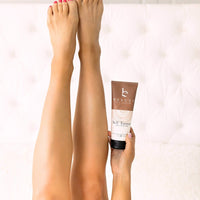
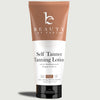
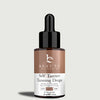
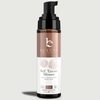
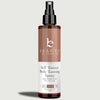
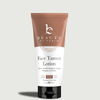
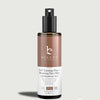
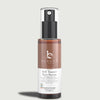
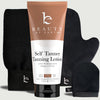
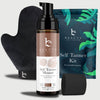

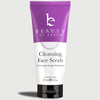
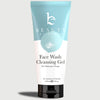

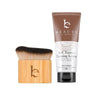









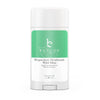







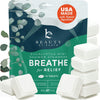
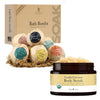
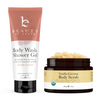
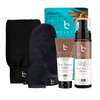


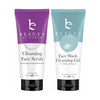




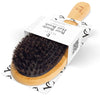
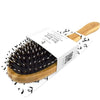
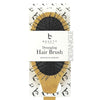
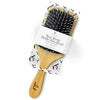

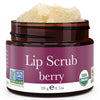
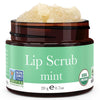
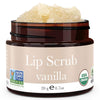













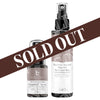


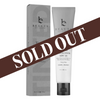


















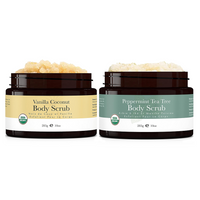
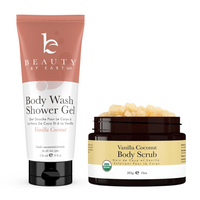
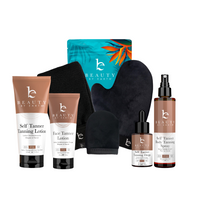

join the conversation